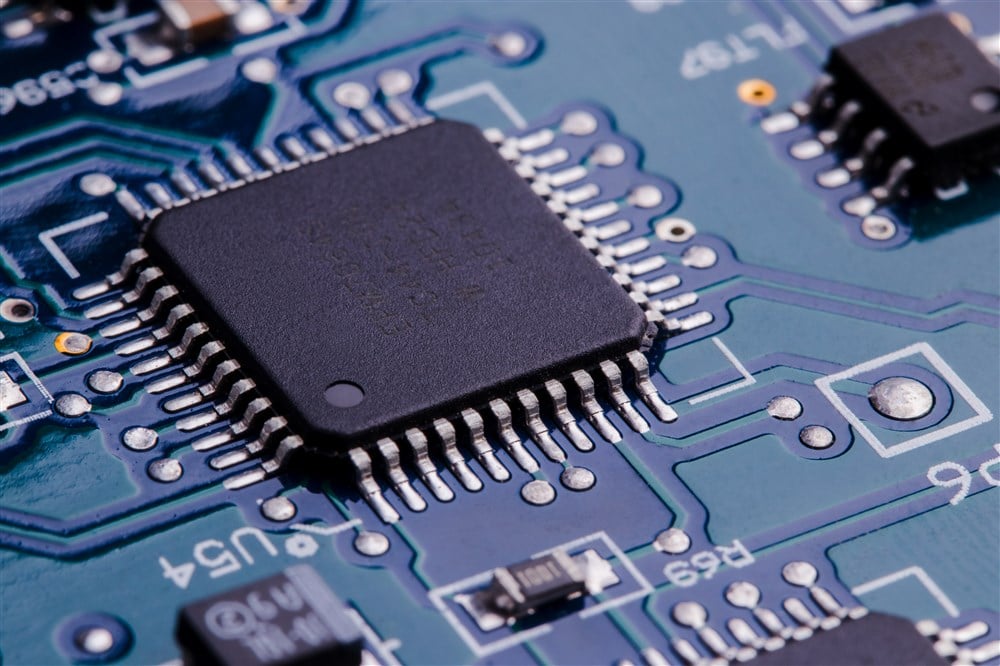
Only four stocks in the Technology Select Sector SPDR Fund (NYSEARCA: XLK) posted gains on October 13, as the spooky specter of higher interest rates sent tech stocks lower.
Chip stocks, which have been some of 2023's biggest success stories, built upon the promise of AI, were among the hardest hit, with Nvidia Corp. (NASDAQ: NVDA), ON Semiconductor Corp. (NASDAQ: ON), NXP Semiconductors N.V. (NASDAQ: NXPI) and Advanced Micro Devices Inc. (NASDAQ: AMD) all posting losses of 3% or more.
In case you're wondering, the four tech stocks with gains in the session were EPAM Systems Inc. (NYSE: EPAM), Fair Isaac & Co. Inc. (NYSE: FICO), Western Digital Corp (NASDAQ: WDC) and Gartner Inc. (NYSE: IT). None are heavily weighted index components, and none were up more than 0.44%.
An Industry Known for Volatility
Semiconductor stocks are known to be volatile, although in the recent past, with AI mania sending so many higher, it's been easy to forget that.
For example, the iShares Semiconductor ETF (NASDAQ: SOXX), which tracks the ICE Semiconductor index, has a beta of 1.64. That means this ETF is expected to be approximately 64% more volatile than the overall market, based on past returns.
There are several good reasons why we saw that kind of market action in chips on October 13.
Semiconductor stocks are particularly vulnerable to declines when investors become concerned about a recession and rising interest rates.
Chipmakers' Fortunes Closely Tied to Wider Economy
Again, it's been easy to forget this lately, but chip companies are highly cyclical, as their fortunes are closely tied to the broader economy.
Taking away the recent hype and hoopla about AI, chipmakers' base case hasn't changed: Their products, or designs for products, are used in a wide range of applications, from consumer electronics to automotive.
It may seem strange, but consumer sentiment is closely related to semiconductor demand, as chipmakers' components are essential, to say the least, in many consumer devices.
For example, smartphone demand has already dropped to multi-year lows. The October 13 release of the University of Michigan consumer sentiment survey showed a decline in Americans' economic optimism and came in below expectations.
If people believe they'll have to curtail spending, they can often push back that new iPhone purchase or even a new car.
Lower orders will, of course, send semiconductor companies' revenues lower, which is likely to also send stock prices down.
Businesses also Slash Spending in a Downturn
During a recession, consumer and business spending tend to contract, leading not only to reduced demand for consumer electronics gear but also business equipment.
Reduced business spending on cloud computing and data storage could diminish chip companies' revenue as these industries are significant consumers of semiconductor products.
Lower demand for data center infrastructure chips may lead to decreased sales for chipmakers like Nvidia and AMD, which are extremely reliant on data centers for substantial portions of their income.
Higher Borrowing Costs Cut into Profit
Then you have the problem of rising interest rates, which increase the cost of borrowing for a capital-intensive industry like chipmaking. Even chip designers rely on expensive gear for research and development.
When borrowing costs rise, it can cut into profit margins and decrease earnings, leading investors to hit the "sell" button.
As a subset of growth stocks, which also typically get hit hard in a downturn or when rates rise, semiconductor companies clearly have their own idiosyncratic risks.
For example, economic certainty or heightened geopolitical risk, both of which markets are facing at the moment, can disrupt the industry's intricate supply chains.
When the Customer Becomes the Competitor
If all of that weren't enough, there's also the issue of competition. These days that means the rush to develop AI chips. Although the market began taking a "wait and see" approach to AI-driven earnings a couple of months ago, it's still pretty clear that there's money to be made.
Nvidia customer Microsoft Corp. (NASDAQ: MSFT) reportedly plans to debut its AI chip as early as November. While companies sometimes cut back on research and development spending during economic downturns, chipmakers will not likely want to pinch too many pennies when it comes to AI product development.
Either scenario, however, could result in disappointing investors. Reduced R&D budgets may not bode well for the future, but maintaining or increasing spending levels could also make investors fearful about money going out when less is coming in.




